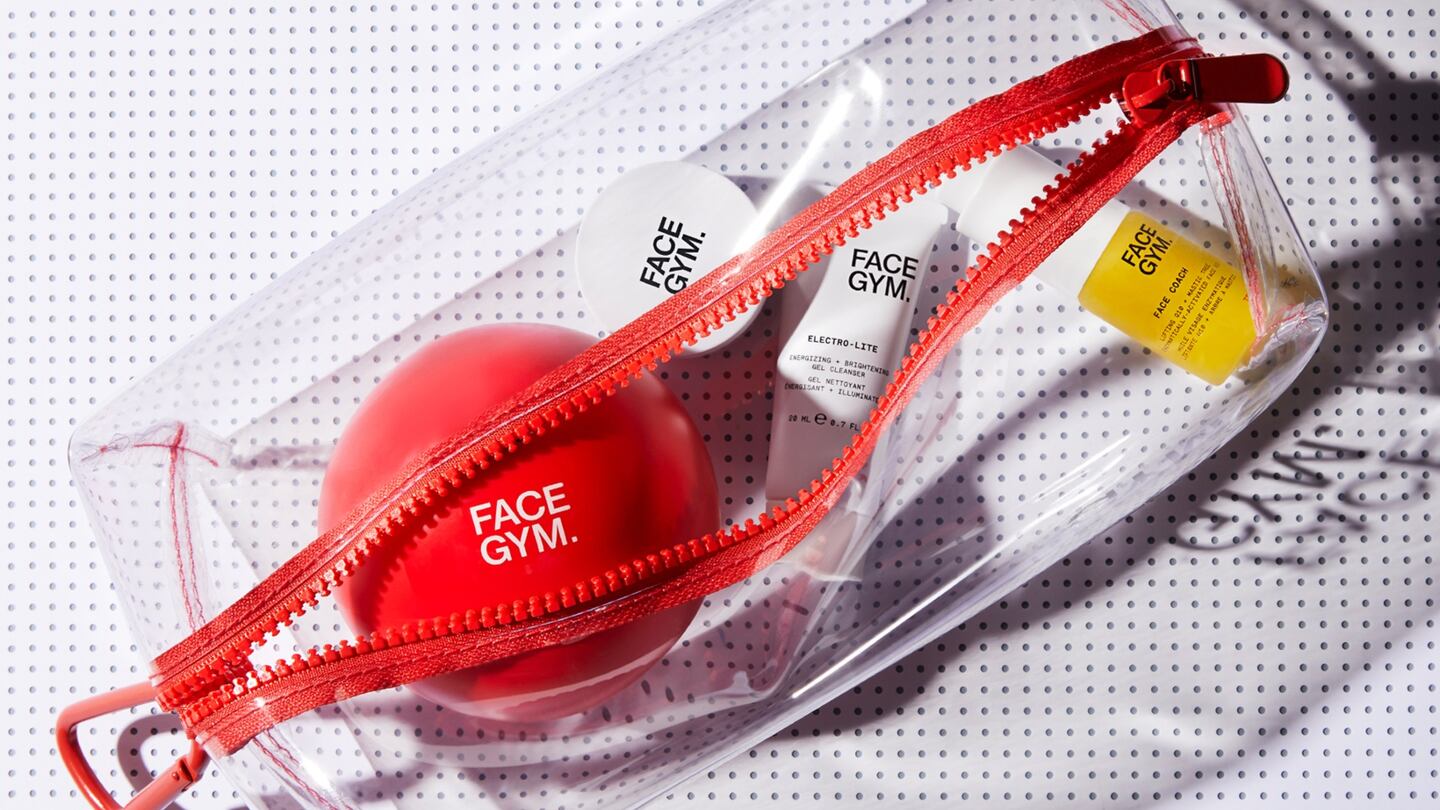
The Business of Fashion
Agenda-setting intelligence, analysis and advice for the global fashion community.

Agenda-setting intelligence, analysis and advice for the global fashion community.

In the early days of the pandemic, FaceGym joined countless retailers in pivoting to e-commerce. The stakes were unusually high: the company’s signature “facial workouts,” where employees knead and use tools on customers’ cheeks, foreheads and chins were inaccessible with their studios closed. Instead, they brought their in-studio offerings online as much as they could, offering online classes and tutorials for customers to complete the workouts at home.
This influx of digital content had the added bonus of directing customers to the brand’s e-commerce site, where it sold both standard skin care fare like cleansers, serums and moisturisers and tools that are more closely connected to the “facial workout” premise, such as a hyaluronic roller, its “face ball” device and the “Pure Lift Face,” a facial toning device.
Unlike many of those other brands, which abandoned their Zoom cocktails and virtual try-ons as soon as stores reopened, FaceGym has stuck with its new approach. Plenty of consumers, it turned out, were interested in the brand even if they couldn’t visit one of its studios in New York or London.
In September 2020, it raised a round of funding for an undisclosed amount and is forecast to generate tens of millions in revenue for the fiscal year ending in February 2022. This week, FaceGym’s products will enter Sephora.
ADVERTISEMENT
“We had this massive engagement through studios, but we’re now seeing that replicated within the digital arena,” said Simon Coble, FaceGym’s chief executive since April. “The last 18 months have been really difficult, but it’s definitely given us a more rounded experience in terms of our development as an omnichannel business.”
FaceGym developed a following for its studios, where clients receive a treatment that promises results that are more than a traditional spa facial but less than a more invasive cosmetic procedure. At its studios — there are 11 worldwide, in New York, Los Angeles, London and Manchester — technicians work the face’s 40-plus muscles to tighten skin and tone the face’s overall appearance, they say.
But its recent online efforts, prompted by the pandemic and continued since then, introduced more people to the brand: Its digital business grew fivefold while studios were closed and online sales of its products increased 500 percent year-over-year from the fiscal year that ended February 2020 to the fiscal year that ended February 2021. For the same period in 2022, FaceGym predicts 40 percent revenue growth over the fiscal year 2020.
Both of FaceGym’s product categories — skin care and tools — will be sold at Sephora, including a travel-size set of its skin care products. But it’s the tools that Inge Theron, FaceGym’s founder, believes will set it apart from the numerous other skin care brands the retailer carries.
“Tools are massive for us, that’s our heritage,” she said. “A lot of Sephora’s demographic is looking for unique ways to decongest their skin, so actually teaching them how to face ball and use these new tools is exciting.”
Since the pandemic upended beauty habits, skin care tools have landed on the side of categories that have benefited. In the US, the beauty device market grew by seven percent in 2020, after seeing declines the year prior, according to market research company Kline Group. While certain brands, such as NuFace or GloPro, both of which are also sold at Sephora, have emerged as talked-about names, the nascent space still has room to grow.
What sets FaceGym, which was founded in 2015, apart from those competitors is its studio experience, so brick-and-mortar will remain at the core of its business. Since reopening, FaceGym’s studios not only have returned to pre-Covid levels but have grown by 30 percent. Theron said that looking forward, it plans to open more doors with a partner, particularly in travel spaces, like hotels, in order to tap new audiences. It’s an approach they’ve already tried out with department stores, opening FaceGym locations in Nordstrom and Saks Fifth Avenue stores in New York City.
But it’s for those that the brand can’t reach with an actual FaceGym location that reflect the Sephora partnership’s value the most. Theron said Sephora is how FaceGym will further kickstart the brand’s expansion beyond the cities where its studios are located. They may have found FaceGym online during the pandemic; eventually, Sephora will give the brand a place to meet customers in person outside of the studio.
ADVERTISEMENT
It’s a tactic that’s been used by similar concepts in the past. DryBar, for example, started as a salon experience in 2008, then debuted its product line for consumers in 2013, using channels like Sephora and QVC to reach new consumers who may not have had a location in their hometown.
“We can now go big and nationwide across America,” said Theron. “Cities like Chicago, Philadelphia, Dallas have been asking for it. Finally, now, we can really come out there and meet them.”
Related Articles:
Is Scalp Care the New Skin Care?
How to Sell Skin Care at Every Price
The Face Changing TikTok Skin Care
This month, BoF Careers provides essential sector insights to help beauty professionals decode the industry’s creative landscape.
The skincare-to-smoothie pipeline arrives.
Puig and Space NK are cashing in on their ability to tap the growth of hot new products, while L’Occitane, Olaplex and The Estée Lauder Companies are discovering how quickly the shine can come off even the biggest brands.
Demand for the drugs has proven insatiable. Shortages have left patients already on the medications searching for their next dose and stymied new starters.